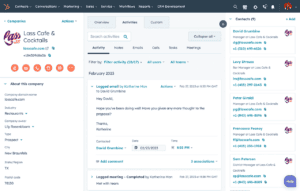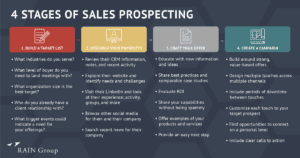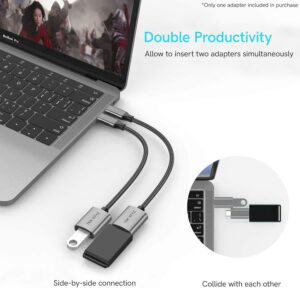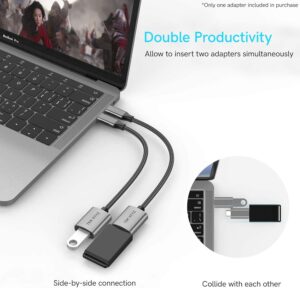Maximizing Business Efficiency with CRM Tools
Customer Relationship Management (CRM) tools have become indispensable for modern businesses. They help manage customer interactions, streamline sales processes, and improve overall productivity. In this article, we’ll introduce you to CRM tools, explain their benefits, and provide actionable insights into how they can transform your business operations.
CRM tools are no longer just for large corporations. Whether you’re running a small business or managing a growing enterprise, the right CRM tool can significantly boost your team’s efficiency and drive revenue.
What Are CRM Tools?
CRM tools are software solutions that help businesses manage relationships with customers, leads, and prospects. They centralize all customer data and interactions in one place, making it easier to track communication, identify opportunities, and close deals.
In essence, CRM tools streamline your sales, marketing, and customer service processes by providing a comprehensive view of every interaction with your clients. This leads to more personalized customer experiences and increased loyalty.
Key Benefits of CRM Tools
1. Enhanced Customer Relationships
CRM tools enable businesses to store vital customer information such as contact details, interaction history, and preferences. By providing a 360-degree view of each customer, sales teams can tailor their communications and offer more personalized services.
2. Improved Communication and Collaboration
Many CRM tools integrate seamlessly with email platforms, allowing teams to access emails directly from the CRM system. This ensures consistent communication across departments, and sales reps can easily track who last contacted a client and what was discussed.
3. Efficient Sales Pipeline Management
With CRM tools, you can manage your sales pipeline from lead generation to closing deals. Sales reps can track where each prospect is in the buying process and receive reminders for follow-ups, ensuring that no opportunity slips through the cracks.
4. Automated Tasks
A powerful CRM system automates repetitive tasks such as sending follow-up emails, generating reports, or assigning leads to sales reps. This not only saves time but also allows your team to focus on more critical tasks like building relationships and closing deals.
5. Data-Driven Decision Making
CRM tools provide valuable insights and analytics that help businesses make informed decisions. By tracking key performance indicators (KPIs) such as conversion rates, deal velocity, and customer lifetime value, you can identify areas for improvement and fine-tune your sales strategies.
6. Increased Customer Retention
By helping sales teams provide timely, personalized, and relevant communication, CRM tools play a vital role in improving customer satisfaction. This, in turn, leads to higher customer retention rates, which is crucial for sustainable business growth.
How to Choose the Right CRM Tool
With so many CRM tools available, choosing the right one for your business can be overwhelming. Here are some factors to consider when selecting a CRM tool:
1. Ease of Use
The CRM tool you choose should be user-friendly and intuitive. If it’s too complex, your team might be reluctant to use it, defeating the purpose of investing in a CRM system.
2. Customization Options
Every business has unique processes and workflows. Look for CRM tools that allow you to customize features, workflows, and dashboards to suit your specific needs.
3. Integration Capabilities
Ensure the CRM tool can integrate with the other software and platforms you’re already using, such as email marketing tools, accounting software, or eCommerce platforms. Seamless integration enhances productivity and ensures all data is in sync.
4. Mobile Access
Sales teams are often on the go. Choosing a CRM tool with a mobile app enables your team to access critical customer information and update data from anywhere, ensuring that business operations continue uninterrupted.
5. Scalability
As your business grows, your CRM tool should grow with you. Ensure that the CRM solution you choose can accommodate more users, customers, and data without a hitch.
6. Cost
While it’s tempting to choose the cheapest CRM solution available, it’s essential to weigh the cost against the features and value it provides. Invest in a CRM tool that will offer long-term benefits, even if the upfront cost is slightly higher.
How to Implement a CRM Tool in Your Business
The success of a CRM system depends on how well it is implemented. Here are a few steps to ensure a smooth CRM integration:
1. Involve Your Team Early
Get input from all departments that will use the CRM tool, including sales, marketing, and customer support. Their feedback will help you choose the right CRM tool and ensure its features meet the needs of your team.
2. Start with a Pilot Program
Before rolling out the CRM tool company-wide, start with a pilot program involving a small group of users. This will allow you to troubleshoot any issues and fine-tune the implementation process.
3. Provide Adequate Training
For your CRM tool to be effective, your team must know how to use it. Provide comprehensive training and resources to ensure everyone is comfortable with the new system.
4. Monitor and Adjust
After implementing the CRM tool, continuously monitor its performance and make adjustments as needed. Pay attention to user feedback and make improvements to optimize its functionality.
FAQs
What is a CRM tool used for?
A CRM tool helps businesses manage interactions with customers and leads. It centralizes all customer data, enabling businesses to streamline their sales, marketing, and customer service processes.
How does a CRM tool improve sales performance?
CRM tools improve sales performance by automating tasks, tracking customer interactions, managing sales pipelines, and providing valuable analytics. This allows sales teams to focus on building relationships and closing deals.
Are CRM tools suitable for small businesses?
Yes, CRM tools are suitable for businesses of all sizes. Many CRM solutions offer scalable plans designed for small businesses, making it easier to manage customer relationships and grow your business.
What are the best CRM tools for businesses?
Some of the best CRM tools include HubSpot CRM, Salesforce, Zoho CRM, and Pipedrive. These tools offer a wide range of features to suit businesses of all sizes and industries.
Can CRM tools be integrated with other business software?
Yes, most CRM tools integrate with various business software, including email marketing platforms, accounting systems, and eCommerce platforms, enhancing workflow efficiency.
Top CRM Tools to Simplify and Scale Your Business
Here’s a list of some of the top CRM tools to consider for your business:
- HubSpot CRM – A leading CRM tool that offers a comprehensive set of features including contact management, sales tracking, and marketing automation. Ideal for small to large businesses.
- Salesforce – One of the most powerful and customizable CRM platforms available, Salesforce offers robust tools for managing leads, tracking sales, and automating processes.
- Zoho CRM – Known for its affordability and customization options, Zoho CRM is perfect for small businesses looking to scale.
- Pipedrive – A CRM tool designed to help sales teams manage their pipelines and close deals faster, with intuitive features like deal tracking and sales forecasting.
- Keap (formerly Infusionsoft) – A CRM tool that focuses on sales and marketing automation, offering a complete solution for small and medium-sized businesses.
Keywords: CRM tools, customer relationship management, sales management, CRM software, sales automation, customer data, business scaling, pipeline management










